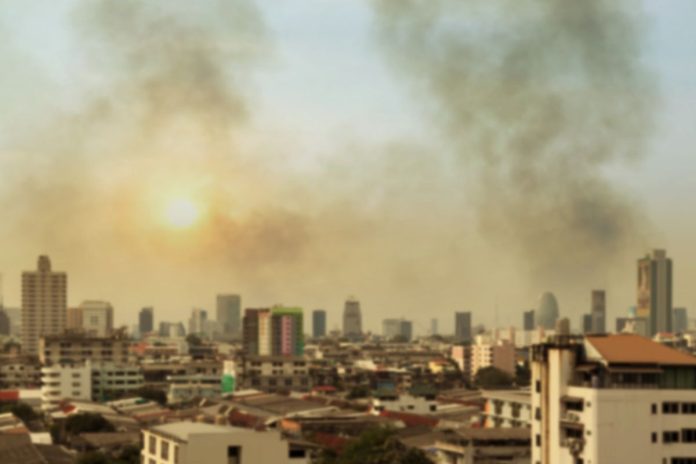Pollution is not just a casual inconvenience; it’s a global catastrophe that’s taking millions of lives every year. Our dependency on non-renewable sources of energy and the effects of diesel emissions on the environment are proving to be unmanageable. Studies conducted by leading scientists have brought to light the stark reality that pollution is responsible for a staggering nine million deaths annually, accounting for one in six deaths worldwide. But can we shift this trajectory, or are we careening towards an irreversible conclusion?
Pollution as a Silent Epidemic
The numbers brought to light by a groundbreaking study published in The Lancet Planetary Health are staggering. More than 90% of pollution-related deaths occur in low-income and middle-income countries, highlighting a pressing public health crisis that many nations have inadequately addressed. The report emphasises that pollution stands as the primary environmental risk factor for diseases and premature mortality worldwide, intricately connected to climate change and wildlife depletion.
Critically, air pollution, primarily attributed to burning fossil fuels, dominates these fatalities at nearly 75%, causing 6.67 million deaths. This pollutant contributes significantly to elevated rates of cancer, heart disease, and respiratory ailments. Additionally, water contamination and toxic substances like lead play substantial roles in mortality rates, claiming 1.36 million and 1.8 million lives respectively. These pollutants lead to health issues such as illnesses from unsafe drinking water, compromised immune systems, and hindered brain development in children.
Furthermore, deaths linked to toxic chemicals such as pesticides and heavy metals have surged by 66% since 2000 due to their presence in food, water, and various products. The concerning contamination levels found in baby foods and turmeric are specifically highlighted. The significance of the study is underscored by Professor Philip Landrigan’s statement that pollution remains the greatest threat to human health worldwide. Dubbed a planetary menace closely intertwined with climate change and biodiversity loss by co-author Rachael Kupka, global initiatives must address this urgent issue collectively.
The silent death toll is a stark reminder that we are not merely polluting our environments; we are poisoning, quite literally, the global population. The victims, more often than not, are the young and the elderly, for whom breathing is becoming a high-stakes game. These deaths are preventable, yet the grim reaper of pollution continues to claim millions annually.
Policy and Industry Responses
Thankfully, there is hope. A response to the pollution crisis requires a multifaceted approach, involving policy changes, technological innovation, and societal shifts. Policymakers play a vital role in holding manufacturers accountable for diesel claims and setting regulations and standards that can mitigate pollution, but the onus also falls on the industry to adapt and innovate in cleaner, more sustainable directions.
Cleaner energy sources and the electrification of transport are not just visionary goals but concrete steps towards a pollution-free environment. It’s crucial to invest in research and development for green technologies and ensure that the cost of transition is not disproportionately borne by those least able to afford it.
Internationally, agreements such as the Paris Climate Accords set the stage for global cooperation in reducing emissions. Yet, while these ambitious goals are a step in the right direction, the accountability and enforcement mechanisms to accompany them often fall short.
Individual and Collective Action
Each of us has a role to play in combating pollution. Whether through individual lifestyle changes or collective advocacy, we can contribute to a healthier environment for all. Simple actions like reducing energy consumption at home, choosing sustainable transportation options, and supporting environmentally conscious businesses can have a positive impact. Legal avenues like filing a diesel emissions claim are already a big step.
However, the scale of the crisis necessitates collective action on a grand scale. Grassroots movements, environmental organisations, and concerned citizen groups all work towards raising awareness, pressuring governments and industries, and fostering community resilience against the tide of pollution.
The Road Ahead
As dire as the pollution crisis may seem, there exists an opportunity in its challenge. By promoting stewardship of the planet and its resources, we can build a better world that is both abundant and clean. Technological advancements promise to decouple economic growth from resource depletion and environmental degradation.
A vision of a world without pollution is not a utopian ideal but a necessary destination. Transitioning our economies and societies towards sustainability will require innovation, resolve, and a recognition of our shared responsibility for the stewardship of this beautiful planet.
The fight against pollution may be formidable, but the cost of inaction is one we cannot afford. It is a battle for our health, our environment, and the very future of humanity. With each step we take, from the individual to the international level, we come closer to a world where pollution no longer robs millions of their right to a clean and healthy existence. Learn more about what you can do at emissions.





